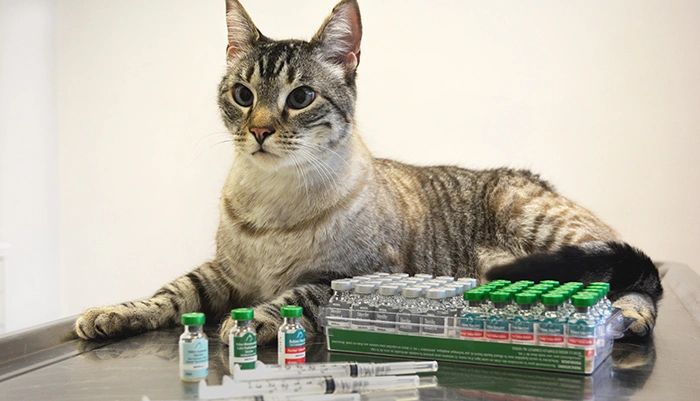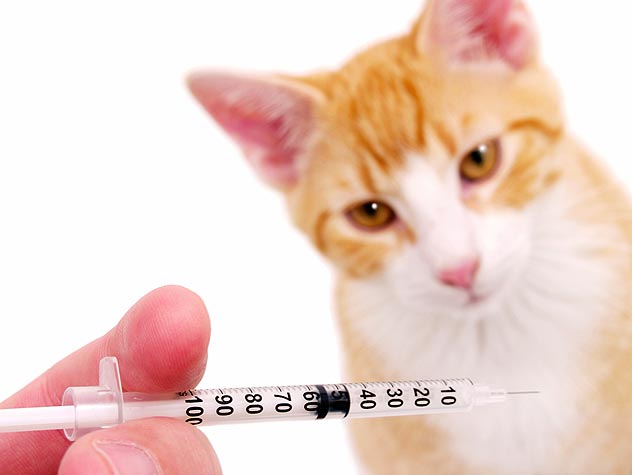One of the toughest jobs in the world is perhaps explaining to cat lovers why an indoor cat needs vaccination. We understand the concerns veiled behind this query. Vaccination for pets is an idea that still makes some of us uneasy, even in the 21st century. One doubts the need for vaccination even more if their pets aren’t leaving the house at all. Therefore, we decided to compile a thread of reasons and vaccines to address some legitimate issues concerning indoor feline vaccination. In today’s discussion, we discuss this topic in detail. Hopefully, this article will be an answer to some of your queries that your curious mind has come up with. So, without further ado, let us begin!
Indoor cats need vaccination.

First, let us look at some valid reasons to make the non-believers believe that their cats need vaccination. Staying indoors doesn’t change this demand!
1- Do you stay indoors as well?
Startled? Well, you shouldn’t be. If you aren’t going to stay at home all your life, then don’t expect the same from your cat, please. Your pet loves you, and chances are very few that you don’t have the same feelings for your tabby! There might come a time when you might have to travel for an extensive period to an unknown location. The indoor thing gets a hit.
2- Cats can give the slip easily
What makes you think your cat is indoors all the time? We mean that cats are clever and tricky when it comes to giving their masters a ditch. Haven’t you ever felt that your cat has a sneaky look about it? All cats, at some point, must leave the house. Reasons and purposes can be different, but we can tell you this much that if your cat is giving you the slip, the animal is being exposed to the same viruses against which there is no immune memory.
3- Feline viral diseases are contagious
This is going to sound nasty, but we are glad to see you worried. It means that you are finally paying attention to cat vaccination for the first time in your life! We are going to make you a little more anxious by stating what is pretty obvious. Since most viral diseases are contagious, your cat has the full potential to receive and transmit these diseases to other cats as well. So, if your cat isn’t vaccinated against these potentially life-threatening viruses, you have got a problem!
4- Rabidity is unprecedented
Haven’t you learned anything from the Covid-19 pandemic? Viruses mutate and can attack your pet any time, even if the infectious particles spare you. An ideal example to quote here would be zoonotic transmission through birds and mammals. What came to your mind when you read this sentence? We hope your answer is bats. Because this is what we mean, a bite from a bat could transfer a virus to your adorable cat, and since you had ruled out vaccination, your cat is now at imminent risk of death, all because of your one silly assumption!
Vaccines for indoor cats

We hope that we have given you enough reasons to take this thing seriously. Now, let us discuss what vaccines your cat needs, even if it is staying most of the time indoors.
1- Rabies
We have talked about this bit briefly earlier, but let us reiterate the importance of rabies vaccination. Domestic animals are always at great risk of becoming infected by rabies. For those of you who aren’t familiar with the doings of the rabies virus, we can tell you that you can say goodbye to sanity once the virus is at its work. Rabid dogs must be shot. Otherwise, they are a threat to others. Is this what you want to happen with your cat? Of course, NO. So, listen closely to what we tell you. Feline rabies is dangerous, and you should book an appointment with your vet soon to devise a vaccination schedule for your pet that includes booster shots.
2-FVRCP
This is the major vaccine that a cat needs to be administered every year. FVRCP stands for nothing but three different viruses. These are feline viral rhinotracheitis, calicivirus, and panleukopenia. You can work out the acronym. So, what do these three viruses do to your cat? Let us have a look at their doings separately.
The rhinotracheitis virus is capable of attacking nasal and ocular membranous areas. Once it hijacks the feline host machinery, it starts to show its pathogenicity. Typically, the symptoms include extreme drooling and sneezing accompanied by high temperatures. In such a state, your cat loses all the appetite for food. One must not take this lightly since it is the herpes virus at work. The feline strain of the herpes virus has been proven to be quite dangerous.
What are caliciviruses capable of? Their domain of action is mostly respiratory by nature. Occasionally, these viruses are also capable of showing their strength and action in the GI tract. There are several symptoms associated with this virus’s presence in the feline system. Ulcers are the most distinguishing feature of infection by this virus, while the rest of the symptoms are almost identical to the previously discussed virus.
Pan leukopenia or distemper is a condition where a virus attacks your cat’s blood cells. This is a problem that is seen more commonly in kittens. The symptoms such as loss of hunger, diarrhea, and high temperature reflect the seriousness of this viral invasion.
Conclusion
Well, that will be all for now. Shots are necessary for your pet, indoors or outdoors debate comes later. You endanger the life of your beloved pet if you don’t opt for vaccination programs for your cat. Things to consider? Type and quality of vaccine apart from following a proper vaccination schedule which mentions boosters and everything, Well folks, time to wrap up things; see you again with some more kitty litter soon!